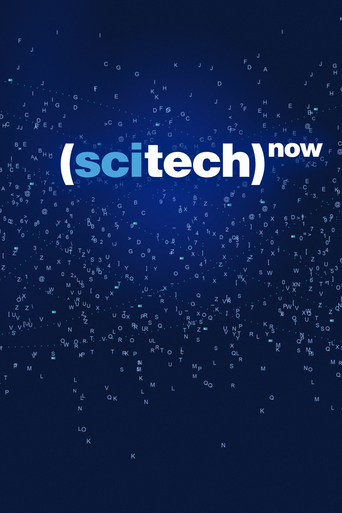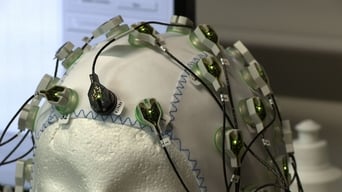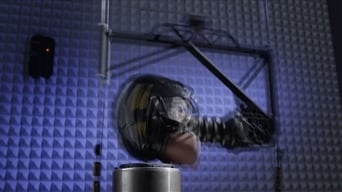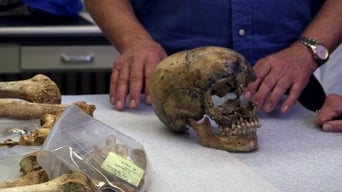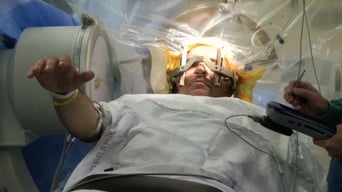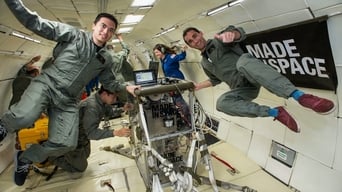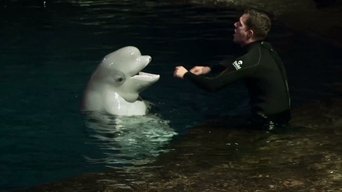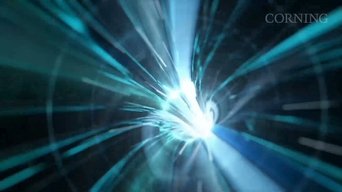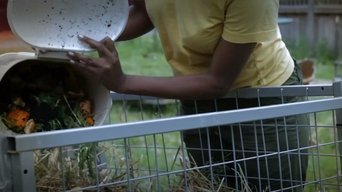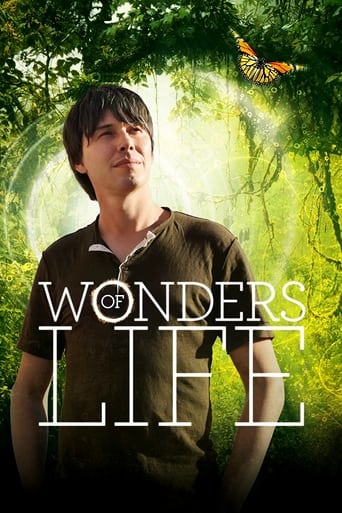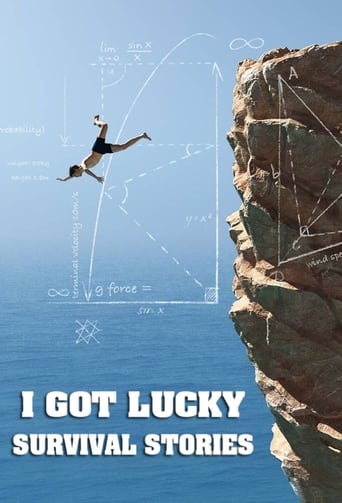SciTech Now (2014)
SciTech Now
2014 / NR
Capturing the latest breakthroughs in science, technology and innovation. With anchor Hari Sreenivasan, we check out the hottest gadgets, meet the innovators creating the startups of tomorrow and map out the mysteries of the scientific world.
Seasons & Episode
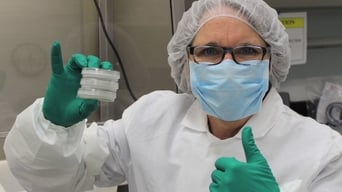
In episode 201 of SciTech Now, scientists determine the viability of plant life in space via an experiment aboard the International Space Station; Rod Breslau on the growing popularity of eSports; John Howell of the Univesity of Rochester on the science behind invisibility; and a New Jersey water treatment plant is reducing its greenhouse gas emissions by turning waste into energy.

In this episode of SciTech Now, scientists use algae to trace the origins of sex; the decommissioned space shuttle Atlantis has a new home in Orlando, Florida; the company deCervo explores the neuroscience involved in athletics; and mobile security research that tries to protect us from hackers.

In this episode, viewers get a glimpse of a new, more efficient wind turbine with an unusual beginning; we learn how data and Statcast is changing the experience of watching a baseball game; mirror therapy employs the illusion of reflection to trick the brain into faster motor recovery; and zero-emission motorcycles are helping police departments.

In this episode of SciTech Now, a four-story magnet may hold the key to clean, renewable energy; Jennifer Vento, from the digital marketing firm Women Online, discusses how women around the world are joining together to create innovative new technologies that protect women both on- and offline; Neil deGrasse Tyson discusses the future of space exploration.

Scientists attempt to answer the question, “How many licks does it take to get to the center of a lollipop?”; filmmaker and producer Emily Driscoll discusses the science behind the lollipop mystery; climate scientist Ken Caldeira talks climate intervention strategies; and one school in Tampa is using technology to facilitate classroom learning.
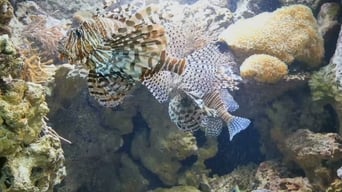
Invasive species threaten Florida’s ecosystem; professor Madhu Thangavelu discusses the future of collaborative robotics; serial entrepreneur Brian Hecht explains how emerging job search engines are altering the employment marketplace; planetary physicist Phil Metzger looks into the future of Mars exploration; and we go behind the scenes at the AMNH.
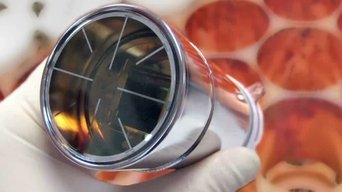
In this episode, the hunt for dark matter ensues 4,850 feet below the ground; Financial Times reporter Gina Chon discusses the depth and implications of cyber security; and thanks to electrodes implanted in her muscles, athlete Jennifer French can compete once again.

In this episode, shark skin could be the key to combating the spread of harmful bacteria inside hospitals; an innovative device allows you to virtually connect with your dog; researchers find a connection between a child’s socioeconomic status and the surface area of the brain; and more.
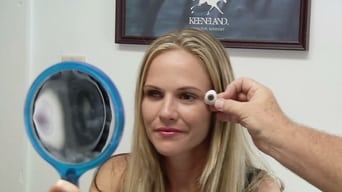
In this episode of SciTech Now, we take a look into the most common genetic disorder worldwide: color blindness; Professor Stuart Licht offers a promising, economical solution to the fight against climate change; and ocularists create prosthetic eyes that are both realistic and comfortable, as well as life changing.
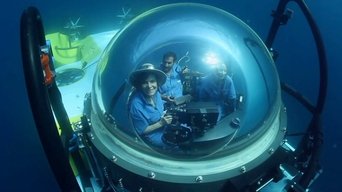
In this episode, we explore the usage and benefits of wearable technology; architect Jeffrey Pelletier takes us inside his Lego room and reveals some real world applications of the toy; a global initiative to create marine sanctuaries offers hope for oceans; and new drugs may be able to outsmart germs resistant to antibiotics.
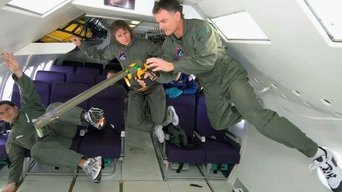
In this episode of SciTech Now, scientists work to grow plants in extreme conditions; an app predicts your seven year romantic outlook; and automation and robots are introduced to one of the oldest trades: brick laying.

In this episode, a high tech submarine allows for better underwater exploration; an average nose can sense 1,200 flavors; mysterious stains on St. Louis’ Gateway Arch prompt a tricky testing procedure; and the U.S. military is turning to microgrids to keep its power reliable and secure.

In this episode, high schools provide both an associated degree and optimal real-world experience; 3D printers create soft tissue; we take a look at the marvelous life of a historic space shuttle; and we learn why we find some animals cute and others not.

Tiny satellites called CubeSats have democratized space science; blended learning combines in-person teaching with tech; a high school student and a science corporation pave the way for easier use of ethanol as renewable energy; and a mouse-like creature with massive hind legs teaches us about the growth of human bones.

We explore farming on an urban rooftop; Peter deMenocal, director of Columbia University’s Center for Climate and Life, explains the climate innovation gap; unwanted algae is threatening Florida waterways; and a robotic surgical system makes precise surgery faster and easier.
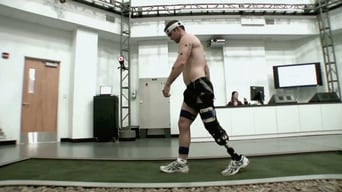
We explore the warming Arctic through its bird population, learn how snowflakes form and why they have 6 sides, check out state-of-the-art care for our wounded veterans at the Center for the Intrepid at Fort Sam Houston in Texas, and see how drones are modernizing the farming industry.
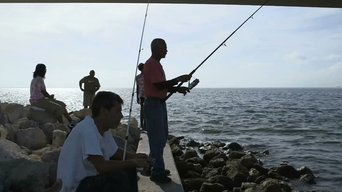
Researchers studying the zebrafish are making new discoveries in developmental biology; SciStarter founder, Darlene Cavalier, is crowdsourcing science research; the innovators behind RaceYa share their educational toy cars; and a dangerous flesh-eating bacteria is becoming a public health problem in warm coastal waters.
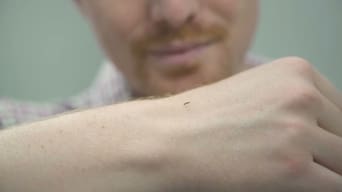
In this episode of SciTech Now, how ants and slime might help us understand collective human behavior; founder of Not Impossible Labs Mick Ebeling discusses “technology for the sake of humanity”; behind the scenes of one at the world’s first virtual medical centers; and a robot that has the potential to change the hotel industry.
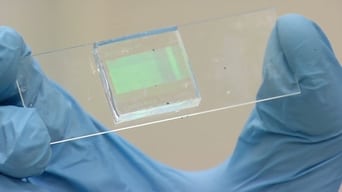
In this episode of SciTech Now: thin, flexible screens may be the future of technology; understanding the significance of gravitational waves; a company that’s giving a new kind of voice to those with speech disorders; and how pesticides used a century ago are affecting residents of a Washington town.
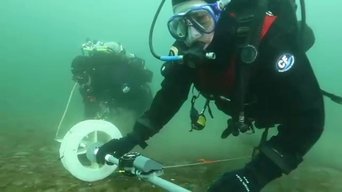
In this episode of SciTech Now, an experimental drug trial that may provide insight into early onset Alzheimer's; how robot teachers are creating new ways of learning; how and why we associate words with shapes; and detectives in Washington state are trying to take down poachers who are illegally selling shellfish on the black market.
Capturing the latest breakthroughs in science, technology and innovation. With anchor Hari Sreenivasan, we check out the hottest gadgets, meet the innovators creating the startups of tomorrow and map out the mysteries of the scientific world.
Watch Trailer
Free Trial Channels


